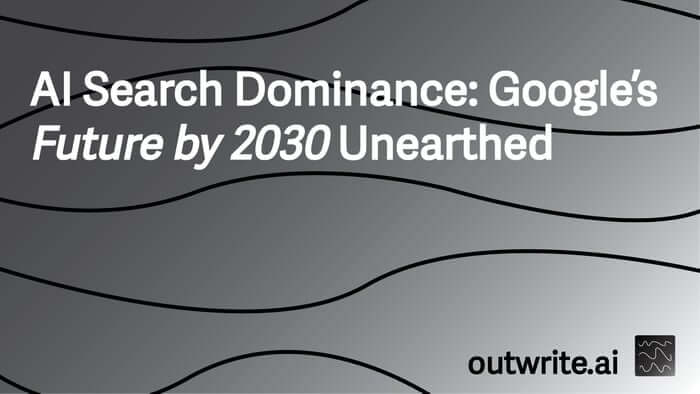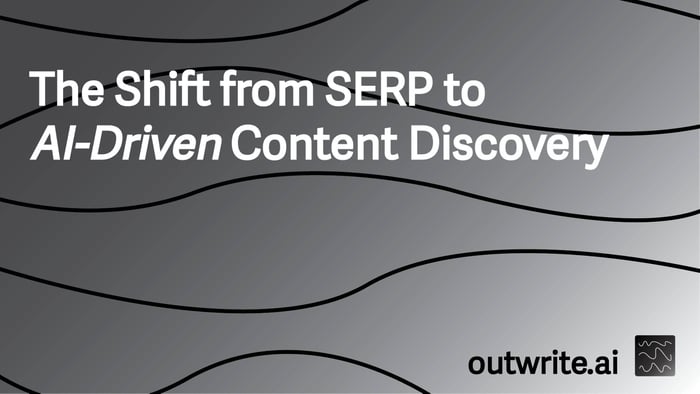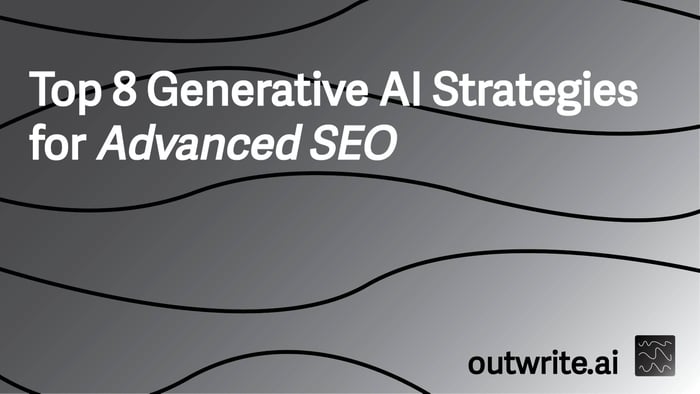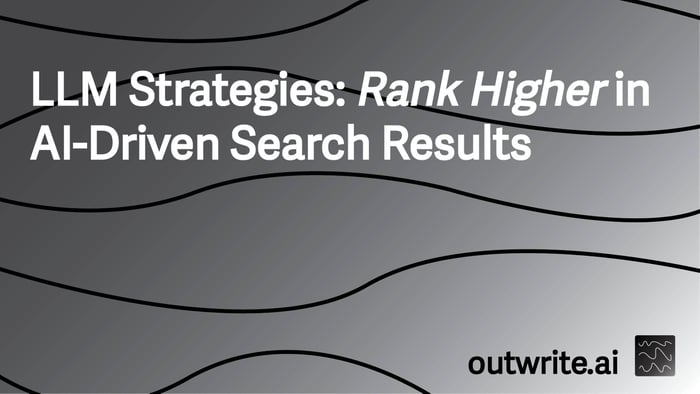Table of Contents
- The Shifting Sands of Search: Google's Evolving Landscape
- Understanding the Rise of AI Technology in Search
- Market Dynamics: AI Search Growth and Google's Challenges
- Expert Forecasts: AI Surpassing Traditional Search by 2030
- Proven Strategies for AI Search Success
- Building Entity Authority and a 360-Degree AI Presence
- Adapting Metrics and Preparing for Voice-First AI Queries
- The Critical Importance of AI Visibility for Your Brand
- Conclusion: Navigating the AI-Driven Search Future
- FAQs
Hey there! Have you ever wondered what the future of search looks like? It's not just about typing queries into a search bar anymore. The world of search is undergoing a massive transformation, driven by incredible advancements in AI technology. By 2030, we're looking at a landscape where AI doesn't just assist search; it dominates it, fundamentally reshaping how we find information and how businesses connect with their audiences.
This isn't some far-off sci-fi prediction; it's happening right now. Google, the undisputed king of search for decades, is facing unprecedented challenges from AI-native competitors. This article will unearth the critical shifts, explore the market dynamics, and provide you with actionable strategies to ensure your brand not only survives but thrives in this new, AI-first search ecosystem. Get ready to dive deep into the future of search, because understanding these changes is no longer optional—it's essential for your digital survival.
The Shifting Sands of Search: Google's Evolving Landscape
For years, Google has been synonymous with search. Its dominance seemed unshakeable, a digital monolith guiding billions of queries daily. However, the advent of sophisticated AI technology is creating seismic shifts, challenging this long-held supremacy. We're seeing a clear trend where users are increasingly turning to AI-powered tools for answers, often bypassing traditional search results entirely. This isn't just a minor blip; it's a fundamental re-architecture of how information is discovered and consumed.
This evolution means that what worked for SEO yesterday won't necessarily work tomorrow. Marketers and content creators need to seriously consider how AI is influencing search behavior and adapt their strategies accordingly. The focus is moving from simply ranking for keywords to becoming the authoritative source that AI models trust and recommend. It's a significant paradigm shift that demands immediate attention and strategic planning.
What are the key indicators of this shift?
- Declining Google Market Share: Google's global search share, while still dominant, has seen a noticeable dip. It decreased from 91.47% in 2024 to about 89.66% in 2025, falling below 90% for much of that year, as reported by Contentgrip.
- Rise of AI Search Traffic: AI search accounted for 8.2% of search traffic in August 2025, a steady increase from 8% in July, with platforms like Perplexity and ChatGPT gaining significant traction, according to Wix Studio's AI Search Lab.
- Increased User Adoption of AI: By August 2025, there were 55 million new AI search users, with AI search visits reaching 7.5 billion, indicating a rapid embrace of these new tools, as highlighted by Wix Studio.
These statistics paint a clear picture: the landscape is changing, and fast. Businesses that ignore these trends risk being left behind as users migrate to more intelligent, conversational, and direct answer-oriented search experiences.

Understanding the Rise of AI Technology in Search
The emergence of AI technology as a dominant force in search isn't accidental; it's the culmination of decades of innovation in natural language processing (NLP), machine learning (ML), and large language models (LLMs). These technologies allow AI systems to understand context, generate human-like responses, and synthesize information from vast datasets, moving far beyond the keyword-matching capabilities of traditional search engines.
This shift means users are no longer just looking for links; they're looking for direct, comprehensive answers, summaries, and even creative content generation. AI search engines like ChatGPT and Perplexity are designed to provide these kinds of rich, conversational interactions, fundamentally altering user expectations. Google itself is responding with initiatives like AI Overviews, demonstrating that even the search giant recognizes the imperative to integrate advanced AI into its core offerings.
What are the core components driving AI search?
- Natural Language Processing (NLP): This allows AI to understand and interpret human language, enabling more nuanced query understanding and relevant answer generation.
- Machine Learning (ML) Algorithms: These algorithms continuously learn from vast amounts of data, improving the accuracy and relevance of AI-generated responses over time.
- Large Language Models (LLMs): Models like GPT-4 and Gemini are capable of generating coherent, contextually appropriate text, allowing AI search to provide synthesized answers rather than just lists of links.
- Contextual Understanding: AI search excels at understanding the intent behind a query, even if it's phrased conversationally or ambiguously, leading to more precise results.
The global AI search engine market, valued at USD 16.28 billion in 2024, is projected to reach USD 18.28 billion in 2025 and an impressive USD 50.88 billion by 2033, with a CAGR of 13.6%, according to Grand View Research. This explosive growth is a testament to the transformative power of AI technology in the search domain.
Market Dynamics: AI Search Growth and Google's Challenges
The market dynamics are clear: AI technology is not just a niche; it's a rapidly expanding sector that is actively eroding Google's long-standing market share. While Google still commands a significant portion of the search market, the growth of AI-native platforms and the increasing user preference for direct answers are creating a competitive landscape unlike anything seen before. This means businesses can no longer solely rely on traditional SEO tactics; they must embrace a multi-platform strategy that accounts for AI search engines.
The challenge for Google isn't just about market share; it's about adapting its core product to meet evolving user expectations. AI Overviews are Google's attempt to integrate generative AI, but they also mean a significant portion of search results will be summarized, reducing the need for users to click through to websites. This fundamentally changes the value proposition of organic search visibility and demands a new approach to content optimization.
How is AI search impacting market share?
- Google's Market Share Erosion: Google's global search share has seen a decline, dropping below 90% for much of 2025, as noted by Contentgrip. This indicates a measurable shift in user behavior.
- Competitor Gains: While still small in comparison, competitors like Bing have seen slight increases, with its market share rising to around 6.16% in 2025, according to SE Ranking. More importantly, AI-native tools like ChatGPT and Perplexity are capturing significant user attention.
- User Behavior Shift: A staggering 84.58% of users are employing AI more often than they did a year ago, demonstrating a significant and rapid shift in how people seek information, as reported by Exploding Topics.
These trends underscore the urgency for businesses to understand and adapt to the new realities of AI-driven search. The future of online visibility hinges on your ability to optimize for these emerging platforms and user behaviors.
| Search Engine | 2024 Market Share | 2025 Market Share (August) | Change |
|---|---|---|---|
| 91.47% | 89.66% | -1.81% | |
| Bing | 5.90% | 6.16% | +0.26% |
| AI Search (e.g., Perplexity, ChatGPT) | ~0% (emerging) | 8.2% (of search traffic) | Significant Growth |
Data compiled from Contentgrip, SE Ranking, and Wix Studio.

Expert Forecasts: AI Surpassing Traditional Search by 2030
The notion of AI technology surpassing traditional search isn't just a possibility; it's a widely accepted forecast among industry experts. Analysts are predicting a future where AI-powered assistants and generative AI models handle the majority of queries, fundamentally altering how users interact with information. This isn't about Google disappearing, but rather its role evolving dramatically, from a link aggregator to a sophisticated AI-driven answer engine.
This shift has profound implications for businesses. If users are getting direct answers from AI, the traditional click-through model of SEO will diminish in importance. Instead, the focus will be on ensuring your brand's information is the authoritative source that AI models cite and recommend. This requires a proactive approach to content creation and optimization, focusing on clarity, accuracy, and establishing strong entity authority.
What are experts predicting for AI search by 2030?
- AI-Powered Assistants to Dominate: Kevin Indig, a prominent industry analyst, projects that by 2030, AI-powered assistants will surpass Google Search in global query volume, with LLM search overtaking traditional search around October 2030, as detailed by TTMS.
- Disruption of Link-Driven Discovery: Curtis Sparrer, principal at Bospar, emphasizes that AI platforms offering direct vendor recommendations disrupt Google’s traditional link-driven discovery model, shifting the focus from links to authoritative, expert-curated recommendations, according to SE Ranking.
- Significant Drop in Organic CTR: A 2025 BrightEdge report shows a 30% drop in organic click-through rates on Google since AI Overviews launched, signaling that AI summarized answers reduce clicks but increase brand visibility in new ways.
These forecasts are not just theoretical; they are based on current trends and the rapid adoption of AI technology. The time to prepare for this future is now, not later.
Proven Strategies for AI Search Success
To thrive in an AI-dominated search landscape, you need more than just traditional SEO. You need a comprehensive strategy that specifically targets how AI technology processes and presents information. This means optimizing your content not just for human readers and search engine crawlers, but for the sophisticated algorithms of generative AI models. The goal is to become the definitive source that AI trusts, cites, and recommends to users.
This involves a shift in content creation, moving towards highly structured, factual, and authoritative content that directly answers questions. It also means understanding the new metrics of success, moving beyond simple clicks to measure brand influence and recommendation rates within AI environments. Embracing these strategies will be crucial for maintaining and growing your digital presence.
How to optimize for AI answer engines:
- Create Short, Clear Answer Blocks: Develop concise answer blocks (40–60 words) on your pages that directly respond to specific queries. This makes it easy for AI Overviews and other generative AI models to extract and present your information, as advised by Expre.co.uk.
- Integrate Author Bio Schema: Assert your E-E-A-T (Experience, Expertise, Authoritativeness, Trustworthiness) by using author bio schema. This helps AI models identify credible sources, as highlighted by Expre.co.uk.
- Maintain Fresh Content: Content older than 18 months sees a 78% drop in AI visibility. Regular updates and fresh content are vital for staying relevant and recommended by AI, a key insight from Semrush.
- Focus on Structured Data: Implement schema markup extensively to help AI understand the context and relationships within your content, making it easier for models to extract and synthesize information accurately.
These strategies are not just theoretical; they are proven methods for enhancing your visibility in the evolving AI search landscape. Companies like Rent a Mac have seen tangible benefits, reporting a 34% higher conversion rate for visitors referred by AI compared to traditional search traffic, demonstrating AI's superior quality audience engagement, according to Semrush.
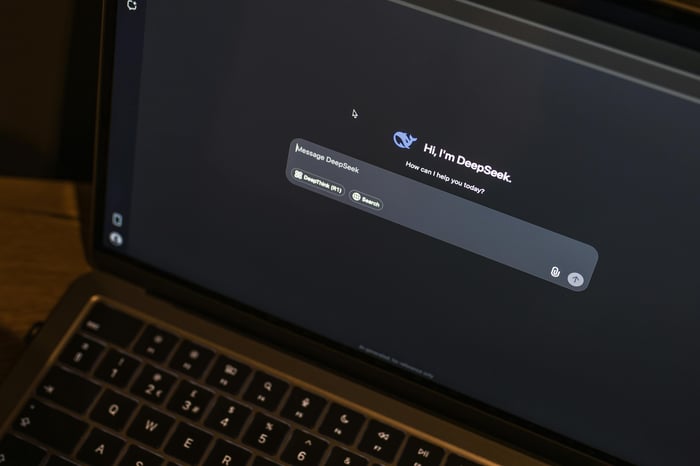
Building Entity Authority and a 360-Degree AI Presence
In the age of AI technology, the concept of "authority" is evolving. It's no longer solely about backlinks; it's about establishing your brand and its key individuals as recognized entities within the Knowledge Graph and as trusted sources for AI models. This means building a robust digital footprint that signals expertise and trustworthiness across various platforms, not just Google.
A 360-degree AI platform presence means extending your optimization efforts beyond Google to include emerging AI search engines and conversational AI tools. This ensures that no matter where users are seeking information, your brand is positioned to be discovered and recommended. It's about diversifying your digital strategy to capture the widest possible audience in an increasingly fragmented search environment.
Why is entity authority crucial for AI search?
- AI Trust Signals: AI models prioritize information from established, credible entities. Building entity authority helps your content get recognized as a reliable source.
- Knowledge Graph Integration: Being recognized as a Knowledge Graph entity means your brand's information is more likely to be featured directly in AI-generated answers and summaries.
- Expertise Recognition: AI evaluates the expertise of authors and organizations. Establishing strong credentials through author bios, industry citations, and thought leadership enhances your authority.
To achieve this, you need to:
- Establish Recognized Entities: Work to get your brand and key personnel recognized as Knowledge Graph entities with verified credentials, as suggested by Expre.co.uk.
- Earn Authoritative Citations: Seek citations from industry publications, engage in thought leadership, and leverage strategic PR to become a trusted reference for AI, a point emphasized by SE Ranking.
- Diversify AI Platform Presence: Maintain visibility on emerging AI search engines like ChatGPT, Perplexity, and Claude, as well as vertical-specific AI platforms, according to Grand View Research.
- Integrate Social Listening: Monitor AI-generated brand mentions and sentiment across social networks and voice assistants to improve relevance and reputation within AI ecosystems, as advised by Grand View Research.
This holistic approach ensures your brand is not just found, but actively recommended by the intelligent systems that are shaping the future of search.
Adapting Metrics and Preparing for Voice-First AI Queries
The shift towards AI technology in search demands a re-evaluation of how we measure success. Traditional metrics like organic click-through rates (CTR) are becoming less relevant as AI provides direct answers, reducing the need for users to visit websites. Instead, businesses must focus on new key performance indicators (KPIs) that reflect AI's influence on brand visibility, engagement, and ultimately, conversions.
Furthermore, the rise of voice assistants and conversational AI means that search queries are becoming more natural and conversational. Optimizing for these voice-first interactions requires a different approach to keyword research and content structuring, focusing on long-tail, question-based queries and modular, answer-focused content that AI can easily process and deliver.
What new metrics should you track in the AI era?
- Overview Appearance Rate: How often does your content appear in Google's AI Overviews or other AI-generated summaries? This indicates AI visibility, even without a click.
- Saved Chat Count: For platforms like ChatGPT, how often are users saving or bookmarking conversations that feature your brand's information? This signifies high-value engagement.
- Conversation Referral Sales: Track sales or leads directly attributed to referrals from AI conversations or platforms. This is the ultimate measure of AI's impact on your bottom line.
- Brand Mention Sentiment: Monitor the sentiment of AI-generated mentions of your brand across various platforms, as AI can quickly amplify positive or negative perceptions.
According to Expre.co.uk, adapting metrics to the AI era means tracking Overview Appearance Rate, Saved Chat Count, and Conversation Referral Sales rather than just clicks, as AI reduces organic click-through rates but increases brand influence. This is a crucial shift in understanding your digital performance.
How to prepare for voice-first and personalized AI queries:
- Optimize for Conversational Keywords: Research and target longer, more natural language phrases and questions that users would speak into a voice assistant.
- Build Modular Answer-Focused Content: Create content in small, digestible chunks that directly answer specific questions, making it easy for AI to extract and use in conversational responses.
- Anticipate Personalized Responses: Understand that AI will increasingly tailor responses based on user history, location, and preferences. Focus on providing comprehensive, contextually rich information that can adapt to various user needs.
- Integrate with AI Ecosystems: Consider how your content can be integrated with broader AI ecosystems, such as Google's Gemini, which pulls data from Gmail, Docs, and Maps, as mentioned by Google's official blog.

The Critical Importance of AI Visibility for Your Brand
If you're still thinking about SEO in terms of traditional blue links and keyword rankings, you're missing the bigger picture. The future of online visibility is intrinsically linked to AI technology. By 2029, the landscape will be so profoundly reshaped that brands without a dedicated AI visibility strategy will struggle to be discovered. This isn't just about staying competitive; it's about ensuring your brand remains relevant in a world where AI acts as the primary gatekeeper of information.
Taking AI visibility seriously means proactively structuring your content, building your brand's authority as an entity, and understanding how AI models learn and recommend. It means moving beyond simply being "found" to being "recommended" by intelligent systems. This shift is critical because if AI can't easily understand, trust, and synthesize your content, your brand will effectively become invisible to a growing segment of the online population.
Why is AI visibility non-negotiable for your brand?
- Direct Answers Reduce Clicks: As AI Overviews and similar features provide direct answers, users have less need to click through to websites. Your brand's visibility now depends on being the source cited within these answers.
- AI as the New Gatekeeper: AI models are increasingly acting as intermediaries between users and information. If your content isn't optimized for AI, it won't pass through this new gatekeeper.
- Enhanced Conversion Rates: As seen with Rent a Mac, AI-driven referral traffic often leads to higher conversion rates because AI delivers more precise, contextually relevant information to users, resulting in more qualified leads.
- Future-Proofing Your Digital Strategy: Ignoring AI visibility is akin to ignoring mobile optimization a decade ago. It's a fundamental shift that will define success in the coming years.
This is where tools like outwrite.ai become indispensable. They are designed to help you create and publish content that is specifically structured for AI visibility, ensuring your brand gets recommended more often. By leveraging such platforms, you can proactively adapt to the evolving search landscape and secure your brand's future.
What are the immediate steps to improve AI visibility?
- Audit Existing Content: Review your current content for clarity, conciseness, and direct answers to common questions.
- Implement Structured Data: Use schema markup to provide AI with clear contextual information about your content.
- Focus on E-E-A-T Signals: Ensure your content demonstrates Experience, Expertise, Authoritativeness, and Trustworthiness through author bios, citations, and factual accuracy.
- Monitor AI Trends: Stay updated on the latest developments in AI search and adjust your strategies accordingly.
The urgency cannot be overstated. The shift to AI-dominated search is not a distant threat but a present reality that demands immediate action and strategic investment in AI technology solutions for content optimization.

Conclusion: Navigating the AI-Driven Search Future
The future of search is undeniably AI-driven. By 2030, AI technology will have fundamentally reshaped how users find information, moving beyond traditional link-based results to direct, conversational, and highly personalized answers. Google's dominance, while still significant, is facing unprecedented challenges, forcing businesses to rethink their entire digital strategy.
The imperative for brands is clear: embrace AI visibility now. This means optimizing your content for AI answer engines, building strong entity authority, adapting your metrics to reflect AI's influence, and preparing for a voice-first, personalized search experience. Ignoring these shifts is no longer an option; it's a direct threat to your brand's future relevance and discoverability. By proactively adopting AI technology best practices and leveraging tools designed for this new era, you can ensure your brand not only survives but thrives, becoming a trusted and recommended source in the AI-dominated search landscape of tomorrow.
By Aidan Buckley — Published October 21, 2025

